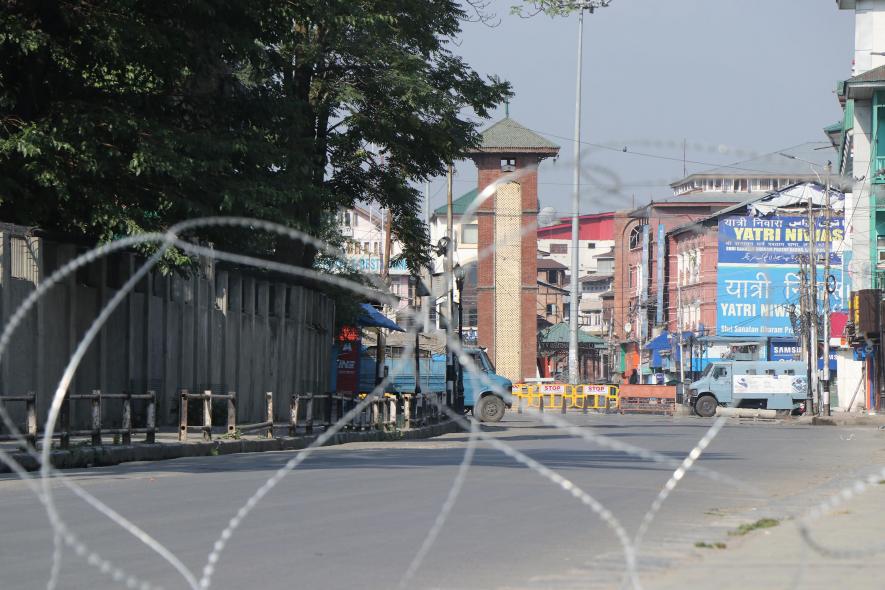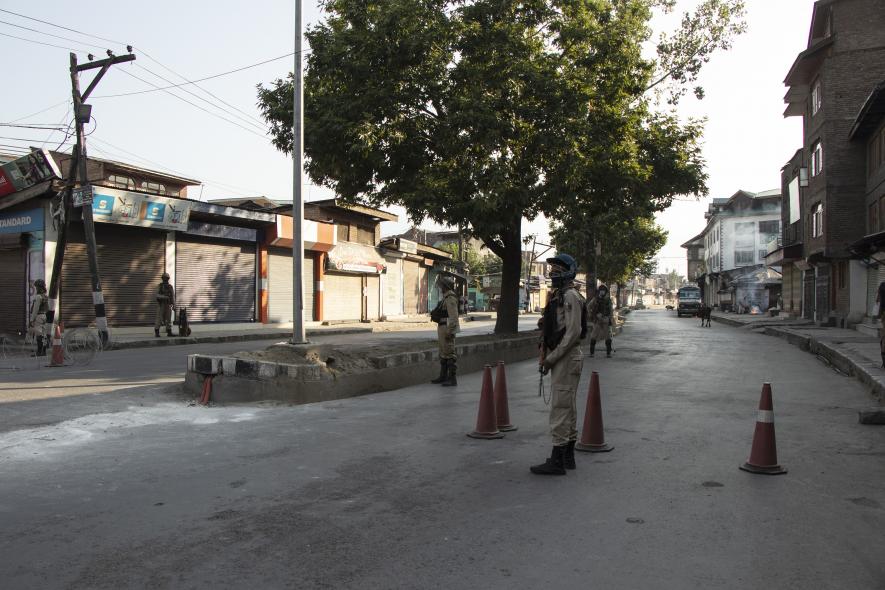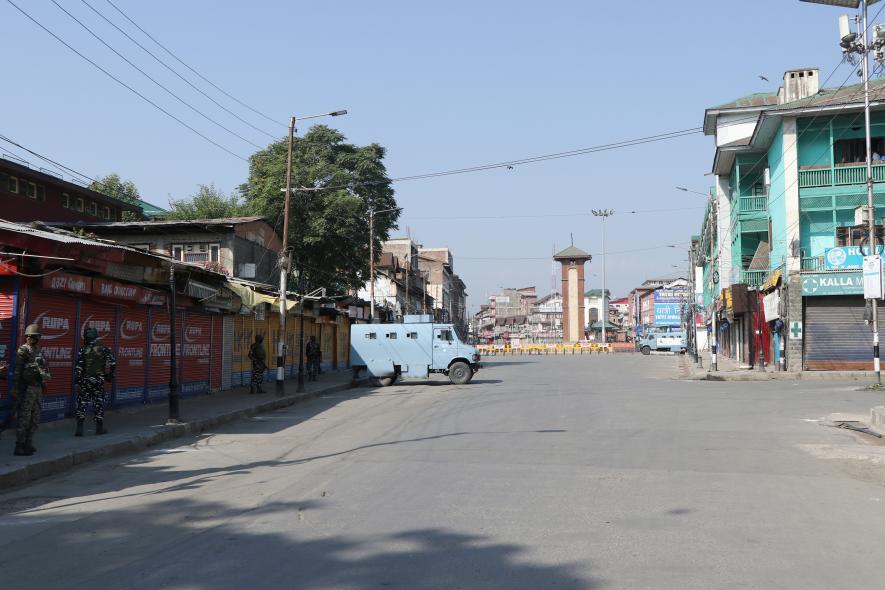No Letup in Crisis as Restrictions Mark First Anniversary of Article 370 Abrogation in Kashmir

Srinagar: The first anniversary of the abrogation of Article 370 and bifurcation of the erstwhile state of Jammu and Kashmir into two union territories was marked by severe restrictions on people’s movement across the region.
On August 5, 2019, the government of India repealed the 70-year-old law and with it initiated a year-long crisis that resulted into social, political and economic tumult in the already war-torn region of Kashmir.
Ahead of the first anniversary, the administration imposed a two-day curfew on August 4-5 citing security reasons, but withdrew the curfew order later. On the ground, however, the movement of locals was strictly prohibited by J&K police and paramilitary personnel, citing orders from the authorities, leading to massive inconvenience.
“It is so frustrating; on the one hand, the administration said there is no curfew, but on the other hand, the policeman on the road is claiming there is a curfew. I have spent the entire morning trying to negotiate with them, but I was finally not allowed to attend my duty,” a Srinagar local said.

Even as a global lockdown was enforced since the outbreak of Covid-19 pandemic in March this year, locals in Kashmir are grappling with a year-long clampdown that began on August 5 last year with the announcement of Article 370 abrogation. Since then, the region is facing one lockdown after the other, heightening fear and insecurity among the locals.
The decision – termed unilateral as local regional political parties, civil rights groups and trade bodies opposed it – was celebrated by Bharatiya Janata Party (BJP) members by unfurling Indian flag at their Srinagar office and distributing sweets. Prominent regional parties like National Conference (NC) and Peoples Democratic Party (PDP), disgruntled with the abrogation, continued to voice their opposition against the move as many party members called it a ‘black day’.
Terming August 5 as “the darkest patch in the history of J&K” in its statement, NC said the actions undertaken on this day were an undemocratic onslaught on the rights and honour of the people of the erstwhile state. “The measures betray, [are a] breach of faith and outrageous back-peddling on the solemn commitments the people of Jammu and Kashmir had got from the Union of India at the time of Accession,” NC spokesperson Imran Nabi Dar said.
Senior NC leader and former J&K Chief Minister Farooq Abdullah had called an all-party meeting of senior leaders at his residence Wednesday morning. None of the leaders, however, were allowed to meet against which many mainstream leaders expressed their shock.

“Locks on gates, lockdowns as celebrations and lies as defences has been the hallmark of last year. Today, political leaders were supposed to meet at Dr Farooq Abdullah's residence to discuss the political challenges region is facing. But unfortunately, we were not allowed,” senior CPI (M) leader MY Tarigami wrote on twitter.
The newly-erected roadside bunkers, barbed and concertina wires and bright yellow barricades have changed the landscape of Srinagar city which appears more like a large military cantonment area. The authorities in Srinagar maintain that the renewed restrictions have been put in place in the wake of Covid-19, however, locals claimed the security measures on the ground hardly appear to be taken in view of the pandemic.
Various international rights bodies like Amnesty and UN, on the first anniversary of the abrogation, highlighted several aspects of the human rights situation in the region, terming it “alarming.”
“Since the Indian Parliament revoked the constitutionally mandated status of the state of Jammu and Kashmir on 5 August 2019, the human rights situation in Jammu and Kashmir has been in free fall,” the latest OHCHR statement read quoting UN experts.
“We are particularly concerned that during the COVID-19 pandemic, many protestors are still in detention and Internet restrictions remain in place,” the statement said.
Get the latest reports & analysis with people's perspective on Protests, movements & deep analytical videos, discussions of the current affairs in your Telegram app. Subscribe to NewsClick's Telegram channel & get Real-Time updates on stories, as they get published on our website.
























